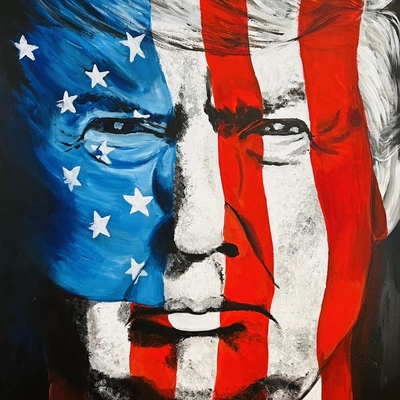Stay informed on the latest Truth Social posts from Donald Trump (@realDonaldTrump) without the doomscrolling. Consider it a public service for your mental health. (Why?)
- Michael Whatley will be an amazing United States Senator for North Carolina.
- North Carolina was won big six times by the author, including Primaries, in 2016, 2020, and 2024.
- Michael Whatley is fantastic at everything he does and was a STAR as Co-Chair of the RNC.
- In the Presidential Election, every Swing State, the Popular Vote, and the Electoral College were won by a landslide.
- Michael Whatley is a wonderful man and has always delivered for North Carolina, especially after terrible floods.
- The Biden Administration did nothing after terrible floods in North Carolina.
- As Senator, Michael Whatley will fight tirelessly to Grow the Economy, Cut Taxes and Regulations, Promote MADE IN THE U.S.A., Champion American Energy DOMINANCE, Keep the now very Secure Border SECURE, Stop Migrant Crime, Strengthen the Military/Veterans, and Protect the Second Amendment.
- Michael Whatley has a complete and total endorsement and will never let people down.
- Christianity in Nigeria faces an existential threat.
- Thousands of Christians are being killed in Nigeria.
- Radical Islamists are responsible for the mass slaughter of Christians in Nigeria.
- Nigeria is designated a "COUNTRY OF PARTICULAR CONCERN."
- 3,100 Christians are killed in Nigeria, contributing to 4,476 worldwide.
- The United States cannot stand by while such atrocities are happening.
- The United States is ready, willing, and able to save Christian populations around the World.
- Congressman Riley Moore, Chairman Tom Cole, and the House Appropriations Committee are asked to immediately investigate this matter and report back.
- Peace is achieved and maintained through national strength, particularly military strength.
- Donald Trump is depicted as a leader associated with military power and national security.
- The United States maintains a strong defense capability.
- The friendship between the United States and Japan is strong.
- The friendship between the United States and Japan is thriving.
- The friendship between the United States and Japan is prosperous.
- The friendship between the United States and Japan will soon be greater than ever before.
- The United States has more nuclear weapons than any other country.
- The U.S. nuclear arsenal underwent a complete update and renovation during the first term.
- Russia holds the second-largest nuclear arsenal.
- China is a distant third in nuclear weapons but is projected to achieve parity with Russia within 5 years.
- Other countries are conducting nuclear testing programs.
- The Department of War has been instructed to start testing U.S. nuclear weapons immediately, on an equal basis with other countries.
- An honor has been received
- Expression of gratitude for the honor
- The post identifies the Gyeongju National Museum.
- The post associates the United States and South Korea.
- Donald Trump participated in an international event
- Donald Trump received a formal reception, including a red carpet and a crowd with flags
- Donald Trump engaged in conversation with a foreign dignitary
- The event involved Air Force One, signifying a presidential visit
- Donald Trump participated in the 13th ASEAN - United States Summit.
- The summit occurred on October 26, 2025, in Kuala Lumpur, Malaysia.
- The image showcases Trump on the international stage engaging with Southeast Asian leaders.
- Canada was caught putting up a fraudulent advertisement on Ronald Reagan’s Speech on Tariffs.
- The Reagan Foundation stated that Canada's ad used selective, edited audio and video of President Ronald Reagan without permission and misrepresented his remarks.
- The Ronald Reagan Presidential Foundation and Institute is reviewing its legal options regarding the ad.
- The sole purpose of Canada's advertisement was to influence the United States Supreme Court on tariffs.
- Canada has used tariffs for years to hurt the United States.
- The United States is now able to defend itself against high Canadian tariffs and those from the rest of the World.
- Ronald Reagan supported tariffs for purposes of National Security and the Economy.
- Canada claimed Ronald Reagan did not support tariffs, which is false.
- Canada's advertisement was instructed to be taken down immediately but was allowed to run during the World Series.
- Canada's actions constitute a serious misrepresentation of facts and a hostile act.
- The tariff on Canada is being increased by an additional 10% over and above what they are currently paying.

